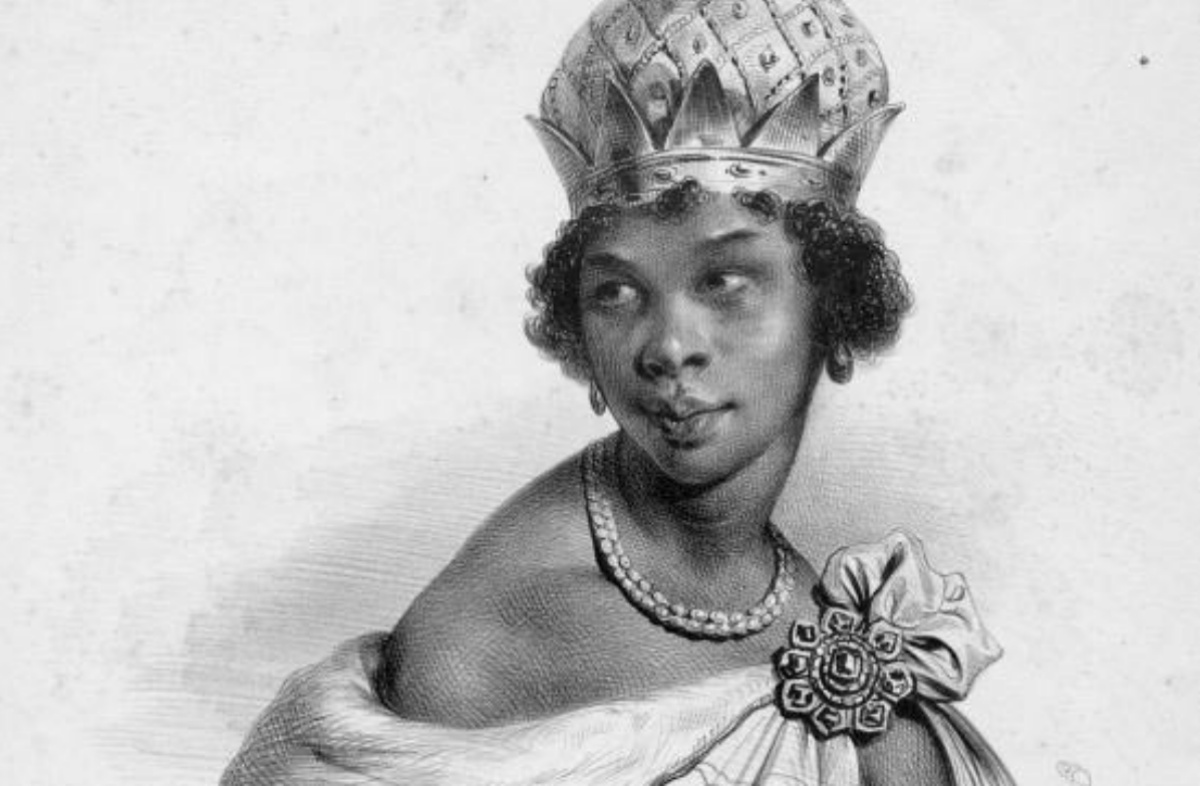The Emancipator of the Ndongo People Warrior Queen Nzinga

Happy Black History Month! For each of the 28 days of February, we at The Mary Sue will have a post about a black woman you should know about—some you may have heard of, some a little bit more obscure, and some fictional who still deserve a lot of love.

Day Sixteen: Queen Ana Nzinga of Ndongo and Matamba
Anna Nzinga, known also as Ana de Sousa Nzinga Mbande, was a queen of the Ndongo and Matamba Kingdoms during the 16 th and 17 th centuries AD. The same year that Nzinga was born, her father Ngola Kiluanji began to lead his people to stand up against the Portuguese colonialists. These Europeans were raiding the territory of the Ndongo for slaves, due to the increasing demands for slave labor in their New World colonies, such as Brazil and other parts of the Americas. Additionally, like the other Europeans in Africa and the colonies, the Portuguese were questing for areas that might be filled with silver or gold.
Ngola Kiluanji was deposed by his son, Mbandi, Nzinga’s brother who was said to be a cruel and deeply unpopular king. One of the queen’s children is also said to have been murdered by her brother. Fearing for their lives and any potential retaliation, Nzinga and her husband fled to Matamba.
During 1621-1622, the Portuguese invited Mbandi to a peace conference in the hopes of ending hostilities between the two peoples because the Portuguese had forced Mbandi to flee from his court in 1617. Nzinga was sent to represent her brother during the meeting with Joao Corria de Sousa, the Portuguese governor, in Luanda. It was from this meeting that we get one of our most well-known stories about Nzinga. Prior to the meeting, the Portuguese are said to have prepared the room with only one chair. This meant that Nzinga would be obliged to stand during the negotiations, thus making her seem inferior. Not one to accept that kind of bullshit, instead of standing, Nzinga had one of her male servants get down on his hands and knees, to be her chair.
Her self-assurance impressed the Portuguese.
The negotiations were a success, peace was achieved between the two grounds, and the Portuguese restored Mbandi to his throne, and also agreed to limit slave raiding activities. Nzinga also converted to Christianity and was baptized, taking the name of Dona Ana de Sousa in honor of the governor’s wife.
However, the Portuguese never honored the treaty and even with the alliance, they continued to raid her kingdom, taking slaves and whatever valuables they wanted in raids.
After the death of her brother via suicide (or murder, we don’t really know) Nzinga took control of the Ndongo and Matamba Kingdoms. There were male rivals who took offense to a woman ruling and Ndongo nobles who opposed Nzinga got her removed from Luanda. The Portuguese then set up Nzinga’s sister, Kifunji, as a puppet ruler who became a double agent and acted as a loyal spy to Nzinga. During this time Nzinga was able to regroup and strengthen her base of power within the territory of Matamba in 1629, taking in refugee slaves and collecting power until she was able to take back her throne in the 1630s.
In her wars against the Portuguese, she exploited the European rivalries in the area by forging an alliance with the Dutch who had conquered Luanda in 1641. With their help, Nzinga was able to defeat a Portuguese army in 1647. When the Dutch were eventually beaten and expelled from Central Africa by the Portuguese, Nzinga continued her struggle against them. Now in her 60s she still personally led troops in battle. She also orchestrated guerilla attacks on the Portuguese which would continue long after her death.
In 1657, the Portuguese after years of struggles with Nzinga requested a new peace treaty. The church “re-accepted” Nzinga in 1656 and she converted back to Catholicism in 1657. Despite repeated attempts by the Portuguese and their allies to capture or kill Queen Nzinga, she died peacefully in her eighties on December 17, 1663.
Recommended Reading:
Nzinga: African Warrior Queen by Moses L. Howard
Njinga of Angola: Africa’s Warrior Queen by Linda M. Heywood
(image: Public Domain)
Want more stories like this? Become a subscriber and support the site!
—The Mary Sue has a strict comment policy that forbids, but is not limited to, personal insults toward anyone, hate speech, and trolling.—
Have a tip we should know? [email protected]
